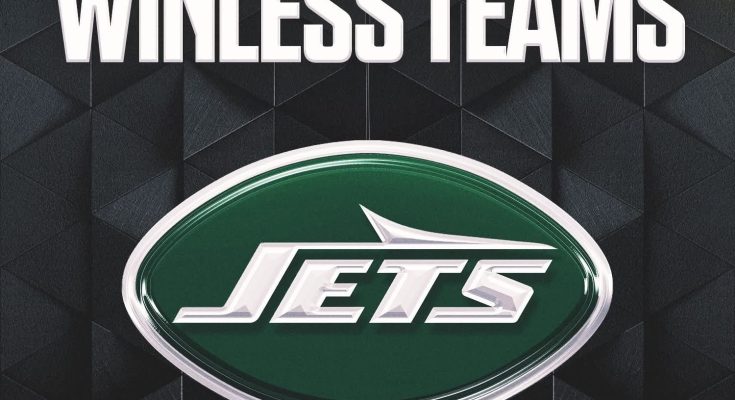From the outset, the Jets looked like the team that couldn’t get over the hump. The Panthers opened with a 30‑yard field goal (kicker Ryan Fitzgerald) to go up 3‑0. The Jets responded only with a field goal (by Nick Folk) in the second quarter, tying it briefly at 3‑3. But then Carolina managed a 3‑yard touchdown pass from Bryce Young to Xavier Legette right before halftime, giving them a 10‑3 lead. That scoreline speaks volumes: the Jets haven’t managed to cross the end zone in two straight games, and their offense is stuck.
Into the second half, everything stayed the same: the Jets couldn’t find consistent traction. Their starting quarterback Justin Fields was benched at halftime after going 6‑12 for 46 yards and absorbing three sacks in the first half. He was replaced by veteran Tyrod Taylor, who did slightly better in yardage (10‑22 for 126 yards) but threw two interceptions and couldn’t break the offensive logjam. Meanwhile, the Panthers’ defense held firm, finishing with only 220 total yards allowed and multiple sacks. (CBS News)
You can point to many moments of breakdown for the Jets. Early on, they failed to convert on fourth‑and‑5 at the Carolina 33-yard line.They were inconsistent in the passing game and never established the run in any meaningful fashion. They lacked big plays; they lacked rhythm. And when the Panthers extended the lead with a field goal in the third quarter (after opening the half with a long possession) it forced the Jets into more desperate mode. They did manage a late field goal, Folk from 47 yards, to make it 13‑6, but by then the Panthers’ defense had asserted dominance and the Jets’ offense had no more answers.
There were some signs of hope—a few drives looked like they might be heading somewhere, the change to Taylor gave a flicker of something different, but ultimately the execution faltered. A critical interception by Panthers cornerback Jaycee Horn in the end zone with 34 seconds left in Q3 — one‑handed and athletic — killed a potential momentum shift for New York. Later, with the Jets down six and having the ball back with under five minutes to go, Taylor got intercepted again. That really sealed it.
Beyond the game itself, there are systemic implications. The Jets’ offensive difficulties are not one‑game anomalies anymore. Their passing attack has failed to generate consistent chunks, their protection has faltered (Fields was sacked multiple times, Taylor also took hits), and the run game hasn’t carried enough of the load to ease pressure. On defense, while they weren’t utterly disastrous, they didn’t create enough for the offense to lean on. The coaching staff has to take responsibility—the decision to bench Fields signals that they’re unsteady at the most critical position. Head coach Aaron Glenn admitted he’s still evaluating who should be the starter next week. (Reuters) When you’re 0‑7, you don’t just “evaluate”; you have to show progress.
The broader history here is sobering for Jets Republic: only two previous Jets teams have started 0‑7 (1996, 2020) and this one now joins that unwanted club. (theScore.com) The franchise has rarely offered such little hope this deep into the season. The expectations were higher at the start of the year. The organization, the fans, the city—they deserve more than this.
The mood among players is noteworthy, too. Tyrod Taylor said “Trust me, no one feels it more than we do. I mean, we’re in it. We’re putting in our blood, sweat and tears, week in and week out, and ultimately it hasn’t resulted in a winning performance.” (New York Post) The fact that players are saying that means they accept the grind, but it doesn’t erase the fact that the results are missing.
In this game, the Jets also had to deal with injuries and absences. Top wide receiver Garrett Wilson was out with a knee injury, which further hampered the passing game. (ESPN.com) The run game lacked teeth; the offensive line looked exposed. Field position was not managed as well as it needed to be; special teams were serviceable but not game‑changing.
Look ahead, and the road doesn’t get any easier. The Jets must now face the Cincinnati Bengals (3‑5) next, then the Cleveland Browns (2‑5) after that. (Reuters) If they don’t show improvement—not just in results, but in performance—they risk slipping into a truly catastrophic season where competitive morale collapses entirely.
For the organization, choices need to be made. Is Fields the guy moving forward? Does Taylor get more looks? Is there a trade coming? How do you fix the protection scheme? The run game? The offensive coordinator? The schedule still offers windows, but this is the time to act, not wait.
For the fans, patience has its limits. Selling tickets, showing up in MetLife Stadium, supporting the squad—those things matter. But results are lacking. Empty seats have been noted. (New York Post) The culture of the franchise must be re‑established.
In the biggest picture, this game is another chapter in a season that could define this franchise’s direction for years. A win here would have changed the narrative. Instead, a loss at home to a team that itself is finding some momentum makes the Jets’ position that much more precarious.
It’s not just about being 0‑7—it’s about how. How do you lose? How do you perform? How do you respond? If the Jets keep showing up and failing to do the essentials—protect the quarterback, create separation, convert third downs, run the ball, stop the run—they will be on the track of becoming a cautionary tale.
Nevertheless, there are still fragments of hope. The defense had some moments. They held Carolina to 13 points despite a lot of problems. The special teams were okay. The crowd on a beautiful fall day mattered. The schedule ahead gives them chances. But hope without action is empty.
So what the Jets must do now: get clarity at quarterback. Improve the offensive line immediately. Commit to a run game that takes pressure off the pass. Simplify the offense so mistakes are fewer. Adjust the defensive scheme to create turnovers. Culture must shift from expecting to lose to demanding to win. And the coaching staff must show visible progress week to week.
This 13‑6 loss to the Panthers is a resume builder—but not in a good way. It tells the league: the Jets are still looking. The question now is: how badly do they want to stop the rot? Because as fans and observers alike will now ask: will this be a 0‑17 team? It’s early to write that story, but you don’t start 0‑7 and ignore it.
In the trenches, the Jets must fight back. They must show up next week and prove that this wasn’t just another loss in the column but a turning point. Because if it’s not, the rest of the season will likely be one long, bitter slide, and the cost will reverberate far beyond October.
In short: the Jets are reeling. The Panthers beat them with a modest offense and a solid defense. For the Jets, the scoreboard says 0‑7. But what the scoreboard doesn’t capture is the growing alarm that this may be more than just a bad start—it could be a franchise‑altering failure unless the direction changes immediately.



